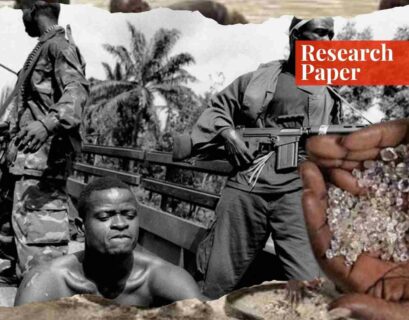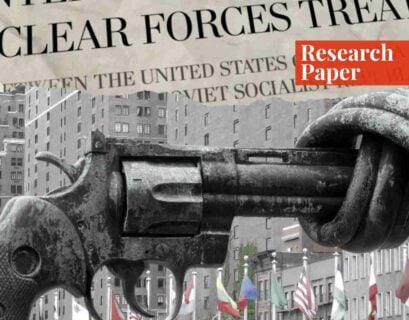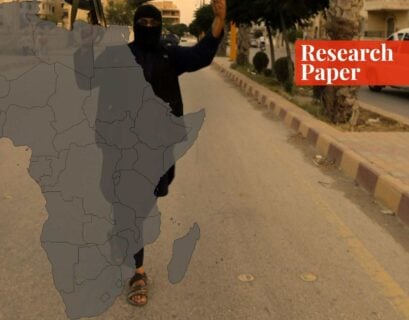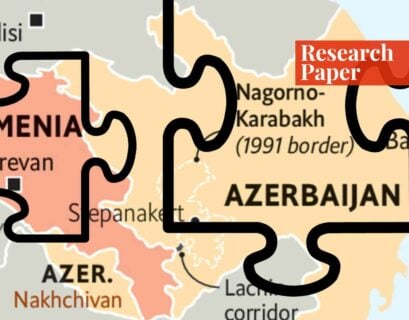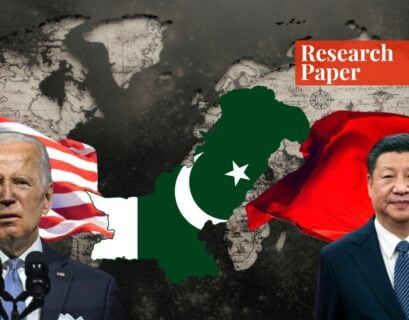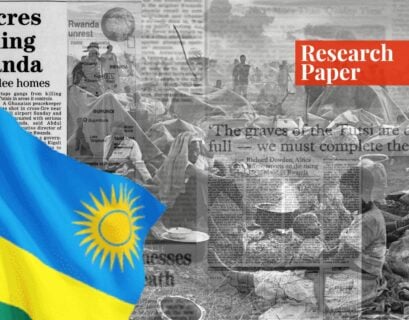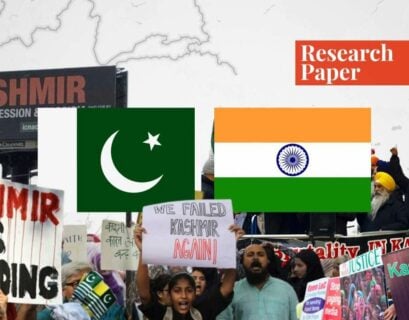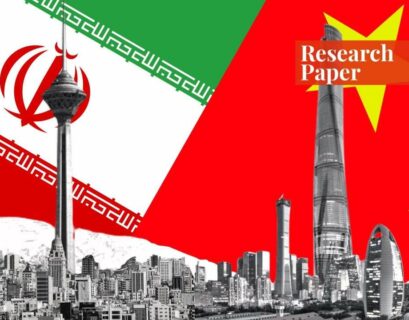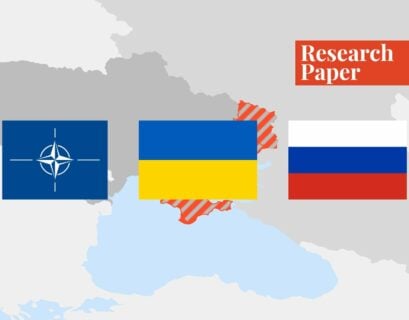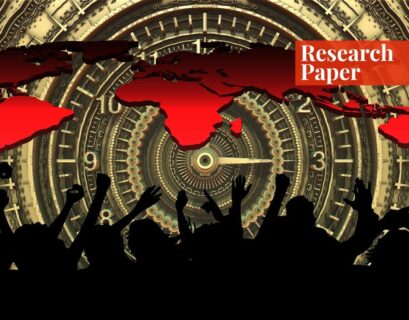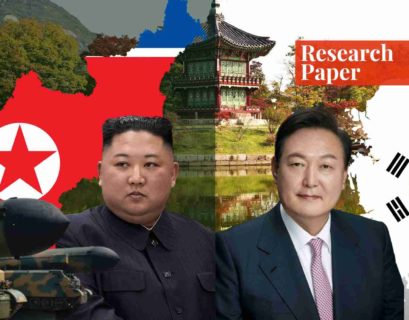What Caused the Sierra Leone Civil War (1991–2002): Greed or Grievances?
When it comes to civil wars, the causes are often categorized into two types: those driven by greed and those driven by grievances.
Rabbia Saeed applies this debate to the 1991-2002 civil war in Sierra Leone, a country infamous for its blood diamonds.
She deliberates on the roles of the two main perpetrators of war and contemplates which factor outweighs the other in the case of Sierra Leone.
Challenges and Prospects of Verification and Monitoring in Arms Control Agreements: A Case Study of the INF Treaty
This paper examines how the challenges posed by technological developments, political complexities, and compliance issues impact the monitoring and verification of arms control agreements.
It focuses on the Intermediate-Range Nuclear Forces (INF) treaty, and the prospects that exist for promoting security and disarmament in the face of these challenges.
How Contemporary International Public Policy is Shaped by the Legacies of Colonialism
The aftermath of colonialism is evident in the contemporary political landscape which shapes international public policy and helps in understanding conflicts in the world.
In this research paper, Tahoora Kamran uncovers the legacies of colonialism through three cases—the French colonial pact; Belgian rule in Rwanda; and neocolonial governance through the IMF and the World Bank—all of which ultimately indicate the traces of colonialism and showcase the importance of using a postcolonial lens.
The Islamic State’s Ingress in Africa: Implications for Regional and Global Security
There has been increasing evidence and concern regarding the presence of ISIS in Africa. While major powers and local authorities are actively countering the threat posed by the group in Africa, it is crucial to address the socio-political and economic deprivations that fuel the rebellion against the state. The group’s ambitions extend globally, as evident in an ambitious world map released by its leader, Baghdadi. Their strategy involves establishing their rule in different countries, employing local commanders known as “Amirs,” who are accountable to the self-proclaimed and widely regarded as illegitimate “Caliph.”
Conflict Management in Nagorno-Karabakh
The Nagorno-Karabakh war ended in 2020, but politically, there are still conflicts and problems related to the territory’s nationality and residence. Using the conflict management concept from Johan Galtung, this research aims to understand the processes and actors in the Nagorno-Karabakh case.
Navigating the Sino-US Rivalry: Pakistan’s Strategic Dilemma
Yashfa Ahsan reflects on Pakistan’s intricate position amid the Sino-US rivalry. The South Asian state’s strategic location demands a multifaceted and balanced approach in its foreign policy and international relations. The author acknowledges the implications of India and the US’s engagement in the Indian Ocean Region for Pakistan’s security and economy. Bearing this in mind, she emphasizes that, with key players like India, Iran, and Afghanistan drawn into this rivalry, Pakistan must establish itself as a reliable economic and strategic partner for the states involved.
Food Insecurity: A Potential Traditional Security Threat?
Amna Naveed analyzes the undeniable link between food insecurity and political instability in a state. While considered a non-traditional security threat, food insecurity directly influences the state military’s retention power, financial spending, and the psychological well-being of the soldiers.
By considering the case of Africa’s food crisis, she reveals the impact of capitalism, colonialism, and war on the people of the continent. She emphasizes that if left unchecked, food insecurity can act as one of the factors responsible for protests, insurgencies, civil wars, and revolutions.
The Relevance of Neorealism in Understanding the Kashmir Conflict
Neorealism views power as a tool for advancing the objectives of the state.
This paper reveals that, from a neorealist standpoint, the main objective of the Pakistan-India conflict regarding Kashmir is to advance national interests.
By incorporating Kashmir, the nation would gain enormous advantages in terms of social, political, and economic development due to the region’s abundance of resources and natural beauty.
Exploring China’s Strategic Partnership with Iran
Divided into three sections, the first part of the paper examines the concept of “strategic partnership” as a new framework in international relations and intentional cooperation. It also examines how this concept has become integrated into China’s foreign policy, and the reasons behind Beijing’s over-reliance on it.
The second section examines China’s historical relations with Iran up to the announcement of the so-called comprehensive strategic partnership, focusing on the motives and goals of both states. The third section highlights the main challenges that are expected in Beijing’s strategic partnership with Tehran.
Evolution of the Two-Party System in the United States
Andrew Jackson’s Democratic Party and Abraham Lincoln’s Republican Party continue to dominate American politics today.
Have you ever wondered how the two-party system in the United States evolved?
This informative paper explores this question and examines the key changes in these two political parties from the nation’s beginning.
Applying Securitisation Theory to the Ongoing Russia-Ukraine Conflict
Muhammad Usama Siddiqi and Brilliant Windy Khairunnisa aim to explain the factors that led Russia to securitise Ukraine through the lens of the securitisation theory.
According to the theory, issues that are fundamentally political are considered and analysed from a security perspective. They use this theory to effectively frame the actors and threats in the Russia-Ukraine conflict.
Sports: A Tool for Diplomacy
History has seen many examples of sports diplomacy helping states to foster good relations. Football diplomacy involving Israelis and Arabs, the revolutionary ping-pong diplomacy between China and the US, and the cricket diplomacy between India and Pakistan are major case studies elaborating on the significance of sports diplomacy.
Masooma Zahra explores the demonstration of this soft power in exhaustive detail, referring to its examples and limitations.
The Impact of Brexit on the UK Economy
This research aims to explore the impact of Brexit, the most historic event to occur on the European continent since the fall of the Berlin wall.
The findings prove that while Brexit has given substance to factors (like taking back control of immigration and regaining sovereignty and national identity), it was not a rational economic decision.
The brits realized their mistake in the face of the severe economic hardships that the UK had to face post-Brexit.
Neo-colonialism & Economic Imperialism: The Third World’s Enslavement
Though traditional colonization has officially ended, decolonization of the Third World has been incomplete. Rabia Ansari argues that in light of the new forms of colonialism seen in the world, decolonization cannot be limited to states becoming independent and the removal of foreign forces. In contemporary times, neo-colonialism or economic imperialism has taken root in the Third World, indebting weak states to former colonial powers.
Fossil Fuel Burning & Corporations: The Case of Berkshire Hathaway & Saudi Aramco
When it comes to climate change, the contribution of giant corporations to global warming is often overlooked. Maryam Ibrahim notes that one of the main causes of global warming is the emission of CO2 from the burning of fossil fuels, and this is where energy corporations come in. The author takes the example of Berkshire Hathaway and Saudi Aramco to shed light on climate denial, and the lack of accountability associated with these corporations’ environmental activities.
The Sociopolitical Freedoms in North & South Korea
There is a marked difference in the political systems of South Korea and North Korea, but human rights issues prevail in both countries. The paper analyzes certain laws that limit freedom in South Korea, and the overall political system in North Korea. Momina Munir Khan concludes that both countries limit individual autonomy in terms of freedom of choice and expression, but the framework of South Korea is still lenient. North Korea, however, has designed its system through mass internalization, to limit the freedom of any sort – humanitarian, social, and political.
